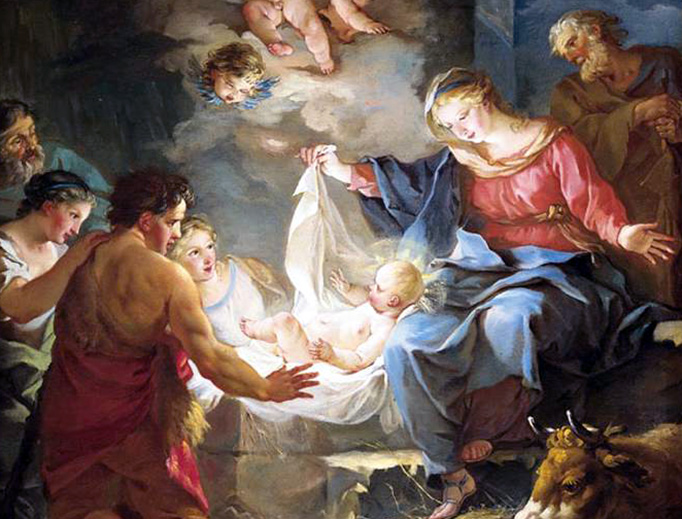Never Forget That Christmas is an Epic Event
During Advent, our hearts expand by exercise of desire as we wait for the coming of the Savior.

Homer sang the glories of Ancient Greece in the two famous epic poems, The Iliad and The Odyssey, which tell the stories of Achilles and Odysseus. The first lines of each poem identify the subject matter and let the hearer know that he is about to hear of great men and their deeds. The first line of The Iliad is, “Sing, goddess, the anger of Peleus’ son Achilles.” The first line of The Odyssey is, “Tell me, Muse, about the wily man who wandered.” The first word in the Greek is “man.” First words and lines are important.
After the fall of Greece and the rise of Rome, poets were hesitant to compose a new epic poem. “No poet could possibly sing the glories of Rome. No words could do justice to the greatness of the Roman empire and her majestic emperors.” No poet took up the pen to put Rome’s accomplishments into verse.
Until Virgil. The first words of The Aeneid make it crystal clear that Virgil is composing the new epic poem and telling the story of the new world empire. Arma virumque cano. “Of arms and a man I sing.” The word man refers to the first line of the Odyssey, and the word sing refers to the first line of The Iliad. In the first three words of his poem, Virgil declares in no uncertain terms that this is the new epic. The glory of Greece is swallowed up and surpassed by Rome. Virgil goes on to tell the story of the founding of Rome from the remnants of fallen Troy. The old has passed away, and the new has come.
The first words of Scripture begin, “In the beginning.” In Hebrew, it is a single word. The author of Genesis then goes on to tell the story of creation, the forming of the world from a single, loving God. The care of the creator is told in poetic form. Man’s unique place in the cosmos and his particular relationship to the Father are depicted not once, but twice, because one rendering would not be enough to express the beauty of the mystery.
But something is not quite right. The creation narrative ends with catastrophe. All is not well. Man has been cast out from the garden, but a promise of redemption has been made. God is not done. A new creation is waiting on the horizon. A new day will dawn.
This time of Advent is the time of expectation. Joyful hope characterizes the spirituality of this season. Our hearts expand by exercise of desire as we wait, not passively, but actively, for the coming of the Savior who will make all things right again.
The first words of John’s Gospel herald the beginning of that new era. “In the beginning was the Word.” They are the same first words that appear in the Greek translation of Genesis: en arche. John is not just telling another story; he is telling the story. God is doing something new. What was undone in the garden is being remade. Now, just as the creation story was told twice because of its depth and mystery, the glory of the Savior’s story, the new creation, must be told from four different perspectives. It is the redemption of all mankind. It is the story of redemption for you and for me. It is the story not just of another king or great man, but of Man, God incarnate.
It is easy to lose sight of the epic nature of Christmas as we celebrate it year after year. Let us remain focused on the season of Advent and wait with the Church in eager anticipation of the fulfillment of the promise made in Ancient times. St. John sings about a man — the man, Jesus Christ. Attend to his song.

















